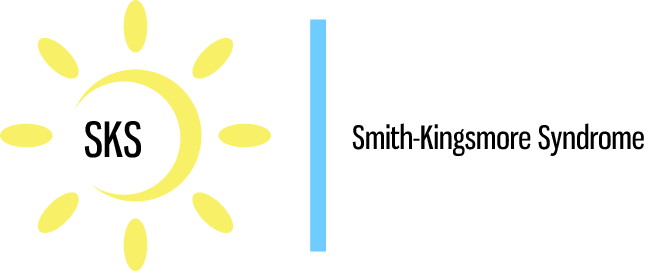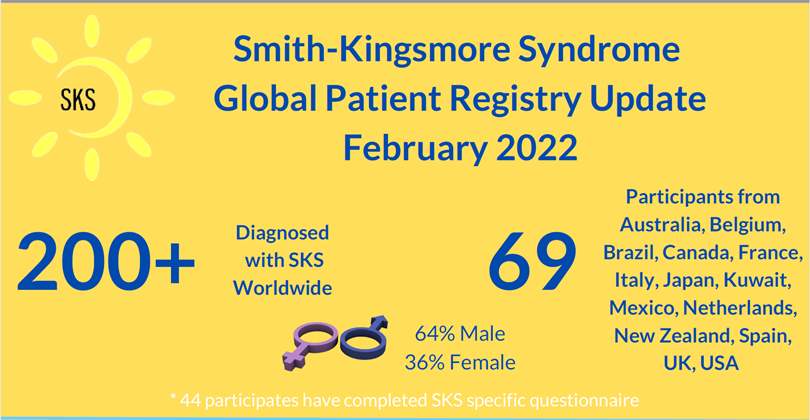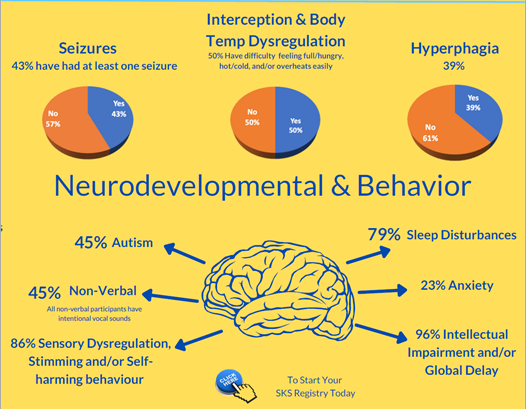
Many symptoms and features are thought to be part of Smith-Kingsmore syndrome. Here we share these symptoms and the latest update from our global patient registry. Some of these characteristics occur more frequently than others. Since there is great variability, not every person with SKS will have all these features. As research progresses, the formal description of SKS will likely change.
Individuals with Smith-Kingsmore syndrome often show symptoms in very early childhood, sometimes at birth or in the first six months of life. These children often have medical challenges and typically have developmental delays. For example, children with SKS may not reach developmental milestones such as rolling over, sitting up, walking, or talking at the expected time.
Common features of SKS vary but may include:
Signs & Symptoms of Smith-Kingsmore Syndrome
BEHAVIORAL
- Autism/autistic traits/sensory processing disorder
- ADHD (attention-deficit/hyperactivity disorder)
- Non-verbal /speech anomalies, delayed or absent speech, distorted articulation
- Self-harming behaviors
NEUROLOGIC
- Global developmental delays/intellectual disability
- Macrocephaly / megalencephaly / ventriculomegaly/polymicrogyria/other brain abnormalities on MRI/rapid head growth in the first 6 months
- Low muscle tone (hypotonia)
- Seizures (including nocturnal focal epilepsy)
- Sleep issues (insomnia, waking at night, sleep apnea)
- Hearing Impairment
- Cortical visual impairment
DIGESTION / GASTROINTESTINAL
- Digestive issues (abdominal pain, constipation)
- Hyperphagia (abnormally increased appetite for food)
PHYSICAL
- Curly / wavy hair
- Abnormal facial features
- Frontal bossing, open mouth appearance, prominent and long philtrum, short nose with a flat nasal bridge, macrostomia, hypertelorism
- Macrosomia at birth (large for gestational age)
- Skin pigmentation/Blaschko lines/hypomelanosis/hypermelanosis in vito/Cafe au lait spots
- Decreased perspiration / heat intolerance
- Accelerated growth in first 18 months to 2 years
- Delayed bone age (scan at 2 years like a newborn) / or slightly advanced bone age
- Motor skill deficits


